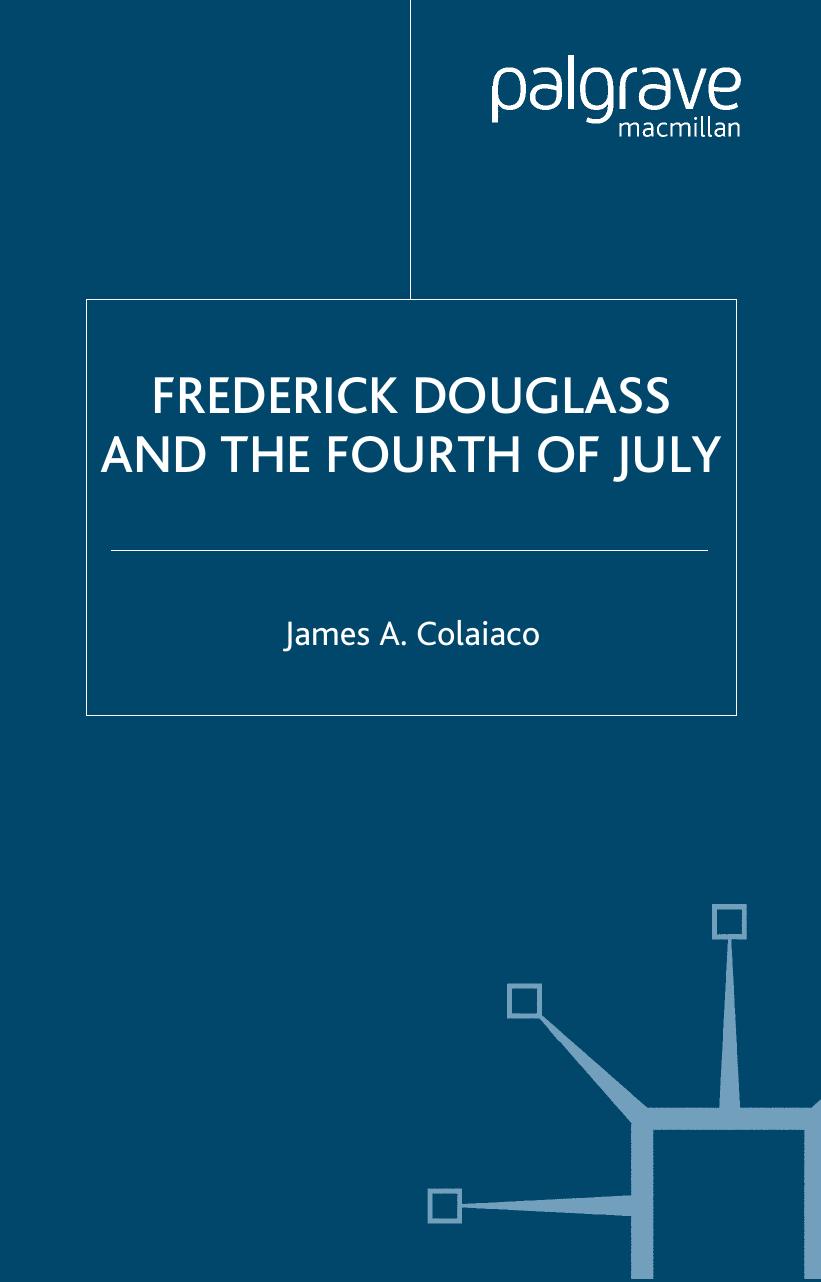Frederick Douglass and the Fourth of July by James A. Colaiaco

Author:James A. Colaiaco
Language: eng
Format: epub, pdf
ISBN: 9781466892781
Publisher: St. Martin's Press
CHAPTER 6
THE DRED SCOTT DECISION AND THE AMERICAN DILEMMA
They [black people] had for more than a century before [the Declaration of Independence] been regarded as beings of an inferior order, and altogether unfit to associate with the white race, either in social or political relations; and so far inferior, that they had no rights which the white man was bound to respect.
—Roger B. Taney Dred Scott v. Sandford
I
Frederick Douglass fought relentlessly for the inclusion of blacks in American society on the basis of political and social equality. At the same time, the supporters of slavery remained steadfast in their belief that from the beginning of the republic, blacks were considered inferior beings. As slaves, they were chattel property, devoid of the human rights guaranteed to white Americans under the Constitution. In 1857, the institution of slavery received valuable sanction from the Supreme Court in the landmark decision of Dred Scott v. Sandford.1 Dred Scott, a slave living in the slave state of Missouri, had been taken in 1834 from St. Louis by his master, army surgeon Dr. John Emerson, to live for two years in the free state of Illinois, where slavery had been forbidden by the 1787 Northwest Ordinance and by the Illinois constitution. Scott was later brought to the new territory of Wisconsin, where slavery had been prohibited under the Missouri Compromise.2
In 1846, Dred Scott, with financial assistance from abolitionists, brought suit in the Circuit Court of St. Louis County against Dr. Emerson’s widow, claiming that by the terms of the Missouri Compromise, his seven-year residence in a free state and in a territory prohibiting slavery made him free. The principal issue before the Court was whether residence on free soil affected a slave’s legal status. Missouri legal precedents supported Scott’s claim, particularly Rachel v. Walker (1836), in which Rachel, a slave, was granted freedom by the Missouri Supreme Court due to her residence in a free territory. During the early years of the republic, a widely accepted sojourning privilege enabled masters to take slaves temporarily into free soil without jeopardizing their ownership. At the same time, slaves taken to live more or less permanently on free soil were generally recognized as forever free. When Dred Scott, soon to become one of the most famous litigants in American constitutional history, initiated his suit, the established legal principle in Missouri was “once free, always free.”3 In 1850, after many delays, Scott prevailed in the St. Louis Circuit Court. Two years later, Emerson appealed to the Missouri Supreme Court, which reversed the lower Court’s decision by a two-to-one vote, explaining that the “times now are not as they were when the previous decisions on this subject were made.”4 According to the Missouri Supreme Court, the relevant law in the case was that of Missouri, where Scott had been a slave, not that of Illinois or Wisconsin territory. In the wake of the Wilmot Proviso—which focused national attention on the question of whether Congress had the authority to forbid slavery in the territories—many Missouri citizens sought greater legal protection for slavery.
Download
Frederick Douglass and the Fourth of July by James A. Colaiaco.pdf
This site does not store any files on its server. We only index and link to content provided by other sites. Please contact the content providers to delete copyright contents if any and email us, we'll remove relevant links or contents immediately.
| Anthropology | Archaeology |
| Philosophy | Politics & Government |
| Social Sciences | Sociology |
| Women's Studies |
Nudge - Improving Decisions about Health, Wealth, and Happiness by Thaler Sunstein(7690)
The Fire Next Time by James Baldwin(5431)
iGen by Jean M. Twenge(5408)
Adulting by Kelly Williams Brown(4565)
The Sports Rules Book by Human Kinetics(4379)
The Hacking of the American Mind by Robert H. Lustig(4375)
The Ethical Slut by Janet W. Hardy(4242)
Captivate by Vanessa Van Edwards(3838)
Mummy Knew by Lisa James(3686)
In a Sunburned Country by Bill Bryson(3536)
The Worm at the Core by Sheldon Solomon(3485)
Ants Among Elephants by Sujatha Gidla(3460)
The 48 laws of power by Robert Greene & Joost Elffers(3243)
Suicide: A Study in Sociology by Emile Durkheim(3017)
The Slow Fix: Solve Problems, Work Smarter, and Live Better In a World Addicted to Speed by Carl Honore(3006)
The Tipping Point by Malcolm Gladwell(2911)
Humans of New York by Brandon Stanton(2867)
Handbook of Forensic Sociology and Psychology by Stephen J. Morewitz & Mark L. Goldstein(2692)
The Happy Hooker by Xaviera Hollander(2686)
